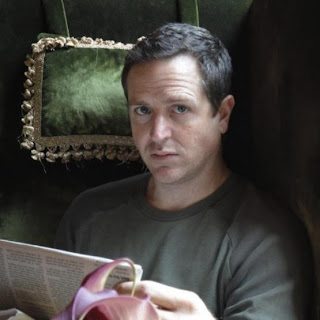Before we talk about why writers need editors, let's talk about what
kind of editors there are.
Every time I read an article that touches on the different specializations in the field of editing I'm amazed by the variety. Contrast this with writers. Are there different sorts of writers? For instance, slow writers, fast writers, reluctant writers,
pantsers, plotters, and so on? I suppose the question is silly, but don't you think it's curious that there are
at least four different kinds of editors (line, developmental/content, assignment, copy, managing, etc.) but we don't have different kinds of writers? In any case, back to editors and editing.
Alan Rinzler, a developmental editor, writes about the difference between developmental editors and copy editors. These are the two kinds of editors I'll be talking about:
Developmental editors offer specific suggestions about the core
intentions and goals of the book, the underlying premise, the story,
character development, use of dialogue and sensory description, the
polish, narrative voice, pacing, style, language – the craft and
literary art of the book.
What developmental editors don’t do is correct spelling and grammar. That’s the job of a copy-editor, who works much later in the publishing process.
An author can recruit a developmental editor even before starting a
book, to brainstorm ideas and make a clear plan. After that, they may
call upon the editor at any stage from early drafts to final. (What should you expect from a developmental editor?)
Alan has a great post that goes more in-depth into the different phases of writing and why, and exactly when, you get the most out of hiring an editor:
When do you need an editor? He sums up his point this way:
A good editor brings to the relationship both literary skills and human
sensitivity. An editor watches your back and anticipates when there’s
trouble ahead. But the author is the boss, in the driver’s seat. It’s
not the editor’s book, so my job is always to enter the creative world
of the author and help fulfill this vision.
Let's get back to our question:
Why does a writer need an editor? Here we're talking about a developmental editor. It goes without saying that every writer needs a copy editor, someone who will go over your manuscript and check it for grammatical errors, typos, and so on.
A developmental editor can help a writer by giving them an edge. They do this in two ways:
1. An editor can be a constructive collaborator
Objectivity. This is something every writer lacks about her own work. Yes, we know our characters better than anyone, we know the plot, we know the possibilities behind the plot, and so on. We're gods when it comes to our fictional worlds, but what we don't know is how another person is going to respond to our words.
I remember once I wrote a violent scene in which my protagonist got the prize and beat the villain. I thought I had used what I think of as 'fun' violence--the sort of violence you see at the beginning of a James Bond movie,
bad-guy-gets-put-in-his-place violence not
life-is-harsh violence that makes you want to go home and hug your kids. Fortunately I did send this story out to readers before I published it because, although to
me it was fun violence, it didn't come across that way to my readers. I lacked objectivity because I was too close to the material.
Being a constructive collaborator is about far more than being objective, it's also about having someone on hand who can take an impartial look at your work and give you
professional non-destructive feedback. Here's what Alan has to say:
Developmental editors offer specific suggestions about the core
intentions and goals of the book, the underlying premise, the story,
character development, use of dialogue and sensory description, the
polish, narrative voice, pacing, style, language – the craft and
literary art of the book.
What developmental editors don’t do is correct spelling and grammar. That’s the job of a copy-editor, who works much later in the publishing process.
An author can recruit a developmental editor even before starting a
book, to brainstorm ideas and make a clear plan. After that, they may
call upon the editor at any stage from early drafts to final. (What should you expect from a developmental editor?)
2. A good editor has her finger on the pulse of the industry
An editor who is well thought of and in high demand is going to edit a large number of manuscripts. I can't speak about all editors, but I've noticed that many editors will specialize. For instance, some will edit anything except romance, some prefer editing speculative fiction, and so on.
A busy editor who specializes in, say, speculative fiction will be able to give speculative fiction authors a leg up not only by being a constructive collaborator but by giving them the benefit of their vast knowledge of the genre. Additionally, they have
current knowledge. The books that are being published today, at least those from traditional publishing houses, have been in the works for a couple of years. A good editor can keep you on top of trends and help make your book more competitive in a very competitive marketplace.
Finding an editor
That said, a
good editor can be hard to find. I wrote a post about this a while ago (
How To Find The Right Freelance Editor For You) but it's always good advice to ask your friends for references and then Google the name of anyone you're seriously thinking of hiring, check them out at
Editors And Predators and get them to edit a sample of your work. At minimum.
If you choose to work with a developmental editor I hope you find someone who is a great fit for you. Remember, the important thing is to keep writing. I hope you're having a wonderful Sunday! Cheers.
Related reading:
-
5 Points To Ponder Before You Self Publish
-
How To Find The Right Freelance Editor For You
-
How Many Books A Year Should I Write?
I was tempted to put this picture up as the profile image. I decided against it, but couldn't resist sharing it with you.
 |
| Which one do you think has an editor? |
Photo credit for profile picture:
Fanpop
Photo credit for cute puppies: jpixphoto.com, see link
here or click on the picture.
























